- Home
- Iris Murdoch
The Italian Girl
The Italian Girl Read online
THE ITALIAN GIRL
Iris Murdoch
To Patsy and John Grigg
Contents
Part One
1 A Moonlight Engraving
2 Otto's Laughter
3 Isabel Feeds the Fire
4 Otto and Innocence
5 Flora and Experience
6 The Magic Brothel
7 Two Kinds of Jew
8 Otto Confesses
9 Edmund is Tempted
Part Two
10 Uncle Edmund in Loco Parentis
11 A Modern Ballet
12 Isabel Confesses
13 Edmund runs to Mother
14 Otto Selects a Victim
15 Lydia's Sense of Humour
16 Elsa's Fire Dance
17 Edmund in the Enchanted Wood
Part Three
18 Elsa's Rings
19 Boxwood
20 Isabel in a long Perspective
21 Rome
A Biography of Iris Murdoch
Part One
1. A Moonlight Engraving
I pressed the door gently. It had always been left open at night in the old days. When I became quite certain that it was locked, I stepped back into the moonlight and looked up at the house. Although it was barely midnight, there was not a light showing. They were all abed and asleep. I felt a resentment against them. I had expected a vigil, for her, and for me.
I moved through a soft tide of groundsel and small thistles to try the two front casements, but they were both firm and a greater blackness breathed at me from within. Calling out or throwing stones at windows in such a silence, these were abhorrent things. Yet to wait quietly in the light of the moon, a solitary excluded man, an intruder, this was abhorrent too. I walked a little, with dewy steps, and my shadow, thin and darkest blue, detached itself from the bulk of the house and stealthily followed. At the side it was all dark too and protected by such a dense jungle of ash saplings and young elder trees that it would have been impossible to reach a window, even had there been one unlatched. I measured, by the growth of these rank neglected plants, how long it was since I had last been in the north: it must be all of six years.
It had been foolish, entirely foolish, to come. I ought to have come earlier when she was ill, earlier when she wanted me and wrote in letters which for anger and guilt I could scarcely bear to read, come, come, come. To have come then would have made sense in the light of the last abstract consideration I had for her: after all she was my mother. But to come now that she was dead, to come merely to bury her, to stand in her dead presence with those half-strangers, my brother and my sister-in-law, this was senseless, a mere self-punishment.
I returned across the lawn, following my own tracks in the dew. The clouded moon had spread a luminous transparent limb across the sky, and showed me the silhouettes of the great trees which surrounded the house. It was still the skyline I knew best in the world. I felt for a moment almost tempted to go away, to try the door once again and then to go, like the mysterious traveller of the poem. ‘Tell them I came and no one answered.’ I looked again at the familiar shapes of the trees and shivered at the sudden proximity of my childhood. These were the old June smells, the wet midsummer night smells, the sound of the river and the distant waterfall. An owl hooted, slowly, deliberately, casting out one inside the other his expanding rings of sound. That too I remembered.
The thought that I might go away and leave them all there asleep made me pause with a sort of elation. There was an air of vengeance about it. That would be to leave them forever, since if I went away now I was sure I would never return. Indeed, whatever happened I would probably never, after this one time, return. My mother’s existence here had been the reason for my not coming. Now her non-existence would provide an even stronger reason.
I must have been standing there for some time in a sad reverie when I saw what for a weird second looked like a reflection of myself. I had so vividly, I now realized, pictured myself as a dark figure upon that silver expanse that when I saw, emerged into the dim light in front of me, another such figure I thought it could only be me. I shivered, first with this weird intuition, and the next moment with a more ordinary nervousness of this second night intruder. I knew at once from the outline of the man that it was not my brother Otto. Otto and I are both very big men, but Otto is bigger, although his stooping six foot three may pass for no more than my upright six foot one. The figure that now slowly advanced towards me was small and slim.
Although I am not especially a coward I have always been afraid of the dark and of things that happen in the dark: and this night illumination was worse than darkness. The sense that I was also frightening the other man simply made me more alarmed. In a horrible silence I moved slowly towards him until we were near enough to catch a glint from each other’s eyes.
A soft voice said, ‘Ah – you must be the brother.’
‘Yes. Who are you?’
‘I am your brother’s apprentice. My name is David Levkin. For a moment you frightened me. Are you locked out?’
‘Yes.’ I hated saying this to him, and suddenly all my old love for the place, my old patriotism for it, filled me with pain. I was locked out. It was monstrous.
‘Don’t worry. I’ll let you in. They are all gone to bed.’
He moved across the lawn to the shadow of the house and I followed him. The moonlight fell in streaks through the overgrown lattice of the porch, weighed down with honeysuckle, and revealed the fumbling hand and the key. Then the door gave softly to show the thick waiting blackness of the house, and I followed the boy out of the honeysuckle fragrance into the old stuffy foxy darkness of the hall. The door closed and he turned on a light and we looked at each other.
I recalled now that my sister-in-law Isabel, the news-giver of the family, had written to me some time ago about a new apprentice. Otto’s apprentices were something of a sad tale and a cause of scandal always to my mother. With unerring care he had attracted to himself a notable sequence of juvenile delinquents, each one worse than the last. I scanned the boy, but could not for the moment recall anything Isabel had said about him. He seemed about twenty. He did not look English. He was slim and long-necked, with big prominent lips and a lot of very straight brown hair. His nose was wide with big suspicious nostrils and he eyed me now with narrow eyes, very doubtfully, his lips apart. Then he smiled, and as the eyes almost vanished the cheeks broadened out in great wreaths of welcome. ‘So you have come.’
The locution might have been impertinent or merely foreign. I could not see his face properly. My mother, intensely mean with money, had always insisted on using the weakest possible electric light bulbs, so that there was scarcely more to be seen within than by the light of the moon. It was a weak, dirty, weary sort of dimness. I wished to be rid of him, and said, ‘Thank you. I can look after myself now.’
‘I do not sleep in the house.’ He said it solemnly and now with a perceptible foreignness. ‘You will know where to go?’
‘Yes, thank you. I can always wake my brother.’
‘He does not sleep in the house now either.’ I felt unable to discuss this.
I felt suddenly utterly tired and ill-used. ‘Well, good night, and thank you for letting me in.’
‘Good night.’ He was gone, dissolving in the pale, uncertain, yellow light, and the door was closing. I turned and began to go slowly up the stairs with my suitcase.
At the top of the stairs I paused as the familiar pattern of the house seemed to enter into my body magnetically: Otto’s room, my room, my father’s room, my mother’s room. I turned toward my own room, where I assumed a bed would have been made up for me; and then I paused. I had not yet really conceived of her as dead. I had thought about journeys and times, about
the cremation which was to take place tomorrow, about the nature of the ceremony, about Otto, even about the property, but not about her. My thoughts, my feelings about her belonged to some other dimension of time, belonged to before whatever it was that had happened to her twenty-four or thirty-six hours ago. The sense of her mortality invaded me now, and it became inevitable that I should enter her room.
The dim electric light revealed the big landing, the oak chest and the fern which never grew but never died either, the fine but entirely threadbare Shiraz rug, the picture which might have been by Constable but wasn’t which my father had got in a sale at a price for which my mother never forgave him: and the closed silent doors of the rooms. Before the sick feeling should make me feel positively faint I went to my mother’s door and quickly opened it and turned on the light within.
I had not expected her face to be uncovered. I closed the door behind me and leaned back against it with a violently beating heart. She lay, raised up rather high upon the pillows, her eyes closed and her hair undone. She could not have been sleeping, though it would have been hard to say quite how this was evident. Her face was a yellowish white and narrowed, shrunk already away from life, altogether smaller. But her long hair which had been bronze once, now a dark brown striped with grey, seemed vital still, as if the terrible news had not yet come to it. It seemed even to move a little at my entrance, perhaps in a slight draught from the door. Her dead face had an expression which I had known upon it in life, a sort of soft crazed expression, like a Grünewald Saint Antony, a look of elated madness and suffering.
My mother’s name was Lydia, and she had always insisted that we call her by this name. This had displeased my father, but he did not cross her in this or indeed in anything else. My mother’s affections had early turned away from her husband and focused with rapacious violence upon her sons, with whom she had had, as it were, a series of love-affairs, transferring the centre of her affection to and fro between us: so that our childhood passed in an alternate frenzy of jealousy and of suffocation. In my first memories she was in love with Otto, who is my senior by two years. When I was six she loved me passionately, and again when I was ten, and again in my later years at school; and perhaps later too, and most fiercely of all, when she felt me slipping from her grasp. It was when it was at last clear to her that I had escaped, that I had run away and would not come back, that she turned her emotions on to her last love, her granddaughter Flora, Otto and Isabel’s only child. She would often say that no one but she could control the little girl. It was true; Lydia had seen to it that it was true.
She was a small woman. She had been so proud when we were at art school, of her two huge, talented sons. I can recall her walking between us and looking up at each in turn with a proud possessive leer, while we stared ahead and affected not to notice. She was, in some way, a great spirit; all that power, with some turn of the screw, might have organized some notable empire. There was nothing of the artist in her. Yet with this she was a timid woman, convinced of the hostility of the world and incapable of crossing a hotel lounge without believing that everyone there was staring at her and talking maliciously about her.
Isabel had put up but little fight. She lost Otto almost at once and withdrew herself into a sad sarcastic remoteness. Almost the last serious talk I had had with my brother, many years ago now, had been when I implored him, on his marriage, to get away from Lydia. I can recall the paralysed look with which he said that it was impossible. Shortly after that I departed myself. It was perhaps the spectacle of Lydia’s ruthlessness to Isabel which finally sickened me and made me feel for my mother at last the positive hatred which was a necessity for my escape. Yet Lydia never destroyed Isabel: Isabel was strong too in her own way, another ruined person, but strong.
It was scarcely credible that all that power had simply ceased to be, that the machine worked no longer. My father had passed from us almost unnoticed, we believed in his death long before it came. Yet my father had not been a nonentity. When he was the young and famous John Narraway, Narraway the socialist, the free-thinker, the artist, the craftsman, the saint, the exponent of the simple life, the redeemer of toil, he must have impressed my mother, he must indeed have been an impressive person, a talented and perhaps a fine person. Yet my early memories are not of my father, but of my mother one day saying to us: your father is not a good man, he is merely a timid man with unworldly tastes. We felt for him a faint contempt and later pity. He never beat us. It was Lydia who did that. He passed on to us only, in some measure, his talents. He had been a sculptor, a painter, an engraver, a stone mason. He left us behind, two lesser men, Otto the stone mason and I, Edmund, the engraver.
I looked at what lay before me with a horror which was not love or pity or sadness, but was more like fear. Of course I had never really escaped from Lydia. Lydia had got inside me, into the depths of my being, there was no abyss and no darkness where she was not. She was my self-contempt. To say that I hated her for it was too flimsy a saying: only those will understand who have suffered this sort of possession by another. And now the weird thought that I had survived her did not increase my being, but I felt in her presence mutilated and mortal, as if her strength, exercised from there, could even now destroy me. I looked with fascination upon the live, still burnished hair and upon the white, already shrunken face. Leaving the room, I switched the light off and it seemed very strange to leave her there in the dark.
I moved softly across the landing to my own door. The house creaked about me as if in recognition, the inarticulate greeting of some primitive dog-like house-ghost. I had no thought of waking Otto now. The closed doors breathed a stupefaction of slumber; and I wanted desperately to sleep myself, as if to appease with that semblance of death the angry defeated spirit. I reached my own door and opened it wide, and then stopped in my tracks. The moon shone clearly on to my bed and revealed the form of a young girl with long glistening hair.
For a moment it seemed like a hallucination, something hollow and incompletely perceived, some conjuration of a tired or frightened mind. Then the form stirred slightly and turned, the bright hair falling on to an almost bare shoulder. I started back and closed the door in a shock of guilty terror. This was a magic of exclusion which was too strong for me. A moment later, like an evil spirit put to flight, I was stumbling away down the stairs.
A woman’s voice above me softly spoke my name. I paused now and looked up. A face was looking at me over the banisters, a face which I dimly, partly, recognized. Then I realized that it was only my old nurse, the Italian girl. We had had in the house, ever since we were small children, a series of Italian nursery-maids; whether one had led to another or whether this was a foible of my mother’s I never remember discovering. But one result had been that my brother and myself, with no natural gift for languages, spoke fluent Italian. The post had become, in a manner, traditional, so that I had always had, as it were, two mothers, my own mother and the Italian girl. Looking up now at the remembered face, I felt a sort of temporal giddiness and could not for a moment make out which one this was, while a series of Giulias and Gemmas and Vittorias and Carlottas moved and merged dreamlike in my mind. ‘Maggie.’
Her name was Maria Magistretti, but we had always called her Maggie. I came back up the stairs.
‘Maggie, thank you. Yes, I see. Of course, Flora is in my room. You’ve put me in Father’s old room? Yes, that’s fine.’
As I whispered, she pushed open the door of my father’s room and I followed her into the bleak lighted interior.
I had never known her to wear anything but black. She stood there now, a small dark figure, gesturing towards the narrow bed, her long bun of black hair trailing down her back like a waxen pigtail. With her pale, framed face, in the solemnity of the hour, she seemed like an attendant nun: one expected to hear the clink of a rosary and a murmured Ave. She looked to me ageless, weary: the last of the Italian girls, left as it were stranded by the growing up of her two charges. She must have been, whe
n she came, but little older than the boys she was to look after; but some trick of fate had left her behind ever since in that northern house. Otto claimed he remembered being wheeled by Maggie in his pram, but this was certainly a false memory: some previous Carlotta, some Vittoria, merged here with her image; they were indeed all, in our minds, so merged and generalized that it seemed as if there had always ever been only one Italian girl.
‘A hot-water bottle in the bed? How kind of you, Maggie. No, not a meal, I’ve eaten, thank you. Just bed. It’s at eleven tomorrow, isn’t it? Thank you, good night.’ With this came to me some old comforting breath of childhood; warm beds, prompt meals, clean linen: these things the Italian girl had provided.
I stood alone in the faded pretty room. The patchwork bedcover was turned back for me. I looked about. A lot of my father’s pictures hung in this room, placed there by Lydia who had, after his death, collected them from elsewhere in the house to make of this place a sort of museum, a mausoleum. It was as if she had, in the end, enclosed him in a narrow space. I looked at the pale water-colours which had once seemed the equal of Cotman and the mannered engravings which had once seemed the equal of Bewick; and there emanated from them all a special and limited sense of the past. They looked to me, for the first time, dated, old-fashioned, insipid. I felt his absence then with a quick pathos, his presence as a sad reproachful ghost: and it was suddenly as if after all it was he who had just died.
2. Otto’s Laughter
Soft, sweet, mechanical, senseless music was being stereophonically produced. We were waiting for the coffin to be carried in. There was to be no service; only as I gathered, a few minutes of quietness in the presence of the dead. Lydia had been a firmly convinced atheist. This was one respect perhaps in which my father had influenced her.
I had scarcely seen the family during the morning. Maggie had brought up my breakfast, and I had exchanged clumsy greetings with Otto and Isabel as we were getting into the cars.

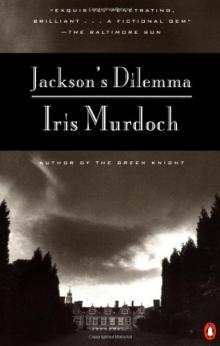 Jackson's Dilemma
Jackson's Dilemma The Flight From the Enchanter
The Flight From the Enchanter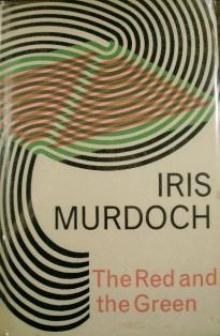 The Red and the Green (Vintage Classics)
The Red and the Green (Vintage Classics)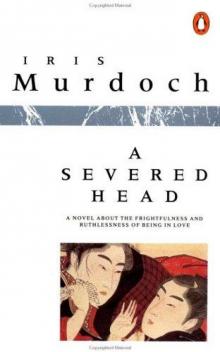 A Severed Head
A Severed Head The Black Prince
The Black Prince The Nice and the Good
The Nice and the Good The Unicorn
The Unicorn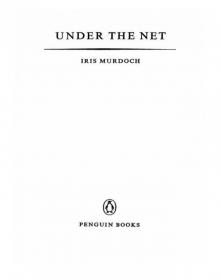 Under the Net
Under the Net The Italian Girl
The Italian Girl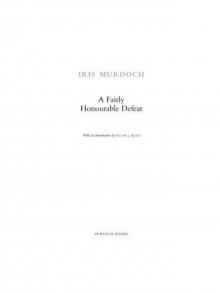 A Fairly Honourable Defeat
A Fairly Honourable Defeat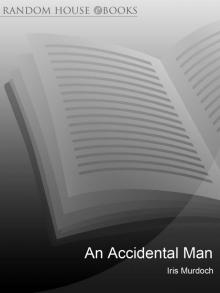 An Accidental Man
An Accidental Man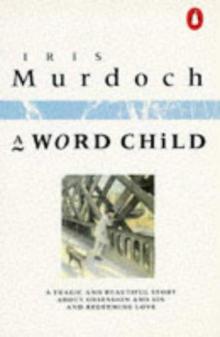 A Word Child
A Word Child The Philosopher's Pupil
The Philosopher's Pupil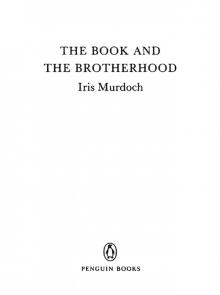 The Book and the Brotherhood
The Book and the Brotherhood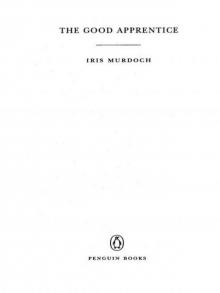 The Good Apprentice
The Good Apprentice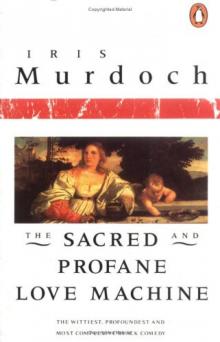 The Sacred and Profane Love Machine
The Sacred and Profane Love Machine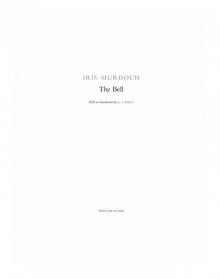 The Bell
The Bell Henry and Cato
Henry and Cato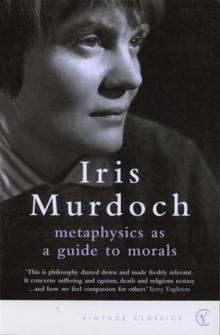 Metaphysics as a Guide to Morals
Metaphysics as a Guide to Morals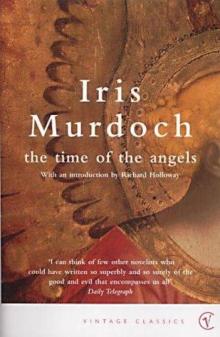 The Time of the Angels
The Time of the Angels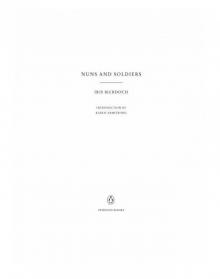 Nuns and Soldiers
Nuns and Soldiers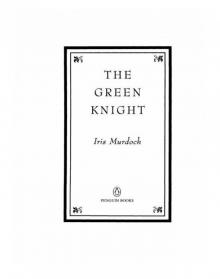 The Green Knight
The Green Knight The Sea, the Sea
The Sea, the Sea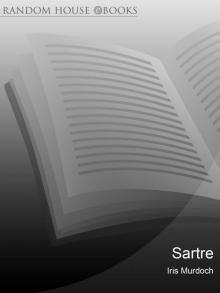 Sartre: Romantic Rationalist
Sartre: Romantic Rationalist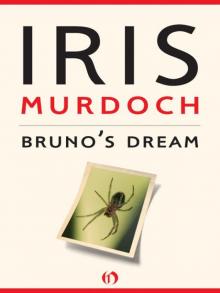 Bruno's Dream
Bruno's Dream An Unofficial rose
An Unofficial rose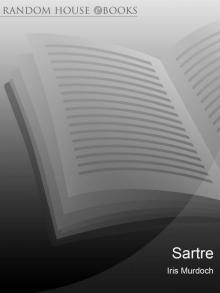 Sartre
Sartre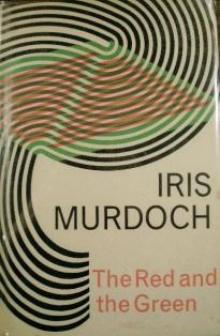 The Red and The Green
The Red and The Green